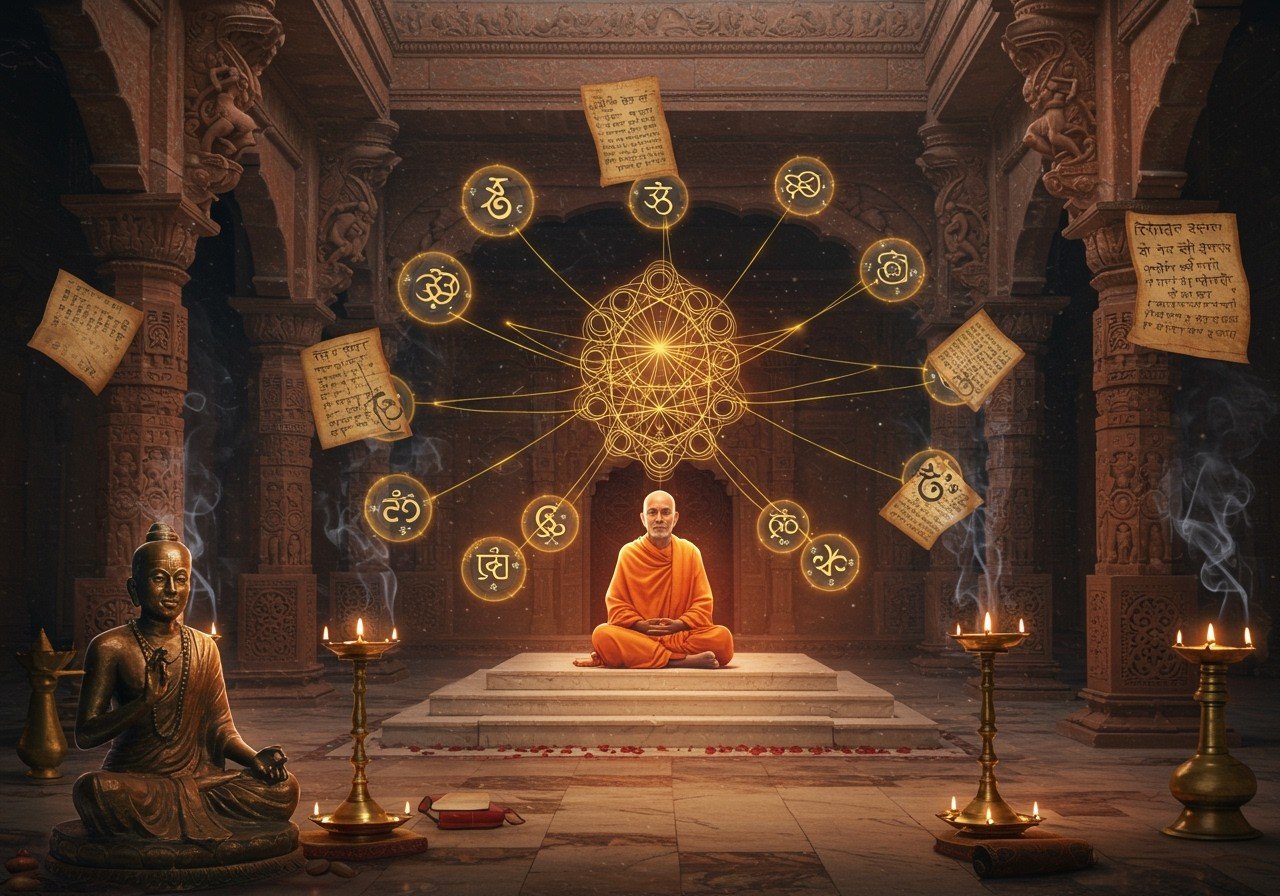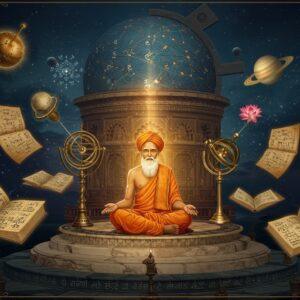Delving into the Nyaya Sutra: A Guide to Logic and Epistemology in Indian Philosophy

In Indian philosophy, the Nyaya Sutra stands as a cornerstone, renowned for its exploration of logic and knowledge. This text is essential for understanding reality through debate and reasoning. It holds a special place in the vast landscape of Indian philosophical traditions.
Introduction to Nyaya Sutra
The Nyaya Sutra, attributed to Gautama Akshapada, is a foundational text of Indian philosophy. It emphasizes logical and epistemological inquiries, playing a crucial role in understanding reality and knowledge acquisition. It delves into the nature of knowledge and perception, and provides a framework for structured debate and reasoning, making it vital in Indian philosophical traditions.
Historical Background and Authorship
The Nyaya Sutra is attributed to the sage Gautama, also known as Akshapada. Scholars place its composition between the 2nd century BCE and the 4th century CE. As one of the six orthodox schools of Hindu philosophy (Shad-Darshanas), the Nyaya Sutra’s logical framework has significantly shaped philosophical discourse across India, influencing various schools of thought, including Buddhism and Jainism. It provided a structured approach to philosophical debates and impacted how different schools interacted with each other.
Core Principles of Nyaya Philosophy
Nyaya philosophy focuses on understanding reality through the application of logic and reasoning. Central to this is the concept of ‘pramana,’ the means of acquiring knowledge. Nyaya identifies four valid pramanas: perception (pratyaksha), inference (anumana), comparison (upamana), and testimony (shabda). Reasoning (‘tarka‘) plays a crucial role in verifying truth during philosophical debates. Perception is further categorized into direct and indirect forms, providing a nuanced understanding of how individuals perceive the world. Inference, as a method of knowledge derivation, utilizes logical steps to arrive at conclusions based on evidence.
To learn more about Dharma and Karma in Hinduism, you can visit this link.
Structure and Content of the Nyaya Sutra
The Nyaya Sutra is organized into five books, each delving into distinct facets of logic and philosophy. These books are further divided into ‘sutras,’ concise statements that require further interpretation for complete comprehension. Commentaries called ‘vrittis,’ like Vatsyayana’s Nyaya Bhashya, offer in-depth explanations of these sutras. The text comprehensively examines themes like doubt, processes of debate, analysis of fallacies, and the nature of consciousness, providing a holistic view of logical reasoning in Nyaya philosophy.
Influence and Legacy
The Nyaya Sutra has exerted a profound influence on the development of Indian philosophical thought, particularly in the areas of logic and epistemology. Its impact extends to various philosophical systems, including Buddhist and Jain philosophies. The text has been used in debates by scholars, contributing to how these systems evolved. Today, Nyaya continues to inspire modern philosophical discourse and the renewed interest in classical Indian logic. Its principles find application in diverse fields ranging from linguistics to cognitive science and offer unique insights into the study of language and mind.
Accessing the Nyaya Sutra in the Modern Age
For those interested in exploring the Nyaya Sutra, various translations and commentaries are readily available to illuminate its teachings. Online resources provide accessible PDFs of this ancient text. For a more in-depth study, scholarly works by experts like Bimal Krishna Matilal and Karl H. Potter offer valuable insights. Understanding the cultural and historical context surrounding the Nyaya Sutra is crucial for effectively engaging with these timeless philosophical concepts.
You may also find interesting information on Hindu Symbols here : Hindu Symbols Explained: Their Meanings and Importance .
Essential Ritual Items for Nyaya Sutra Study at Poojn.in
For those engaged in studying the Nyaya Sutra and performing related rituals, Poojn.in provides a selection of authentic items to enhance your spiritual practice.
-
Brass Chand Mala with Maa Kali Inscriptions: This 27-inch decorative piece can create a sacred atmosphere for your study space, fostering a focused environment for contemplation and reflection on the Nyaya philosophy. The inscriptions of Maa Kali, the goddess of time and change, can inspire deeper understanding of the concepts of creation and destruction as discussed in the Nyaya Sutra.
-
Red Cotton Kalava Raksha Sutra (Dor Mala): This sacred thread is ideal for those observing traditional practices during Nyaya Sutra study. The Kalava symbolizes protection and unwavering commitment to philosophical pursuits, serving as a reminder of your dedication to seeking truth and knowledge.
Poojn.in assures:
- 100% authentic ritual items
- Secure packaging
- Pan-India delivery
- Easy online ordering
- Quality assurance
Visit www.poojn.in to discover our complete collection of ritual items tailored for philosophical studies and traditional practices. All items come with comprehensive product descriptions and transparent pricing for informed decisions.
[Note: Prices may vary. Please visit the website for current pricing.]
Embracing the Wisdom of the Nyaya Sutra
The Nyaya Sutra offers a profound invitation to delve into the realm of logical reasoning and philosophical inquiry. As a cornerstone of Indian philosophy, it imparts enduring wisdom that transcends time, guiding seekers of truth through its systematic approach to comprehending reality. Engaging with this foundational text enables us to honor the rich philosophical legacy while embracing the tools of logic and reasoning that remain relevant today. The Nyaya Sutra provides a path to enlightenment through the pursuit of knowledge and the application of logic, inspiring countless generations in their quest for truth and understanding.
For further exploration of Hindu philosophy, consider reading A Beginner’s Guide to Hindu Philosophy.


